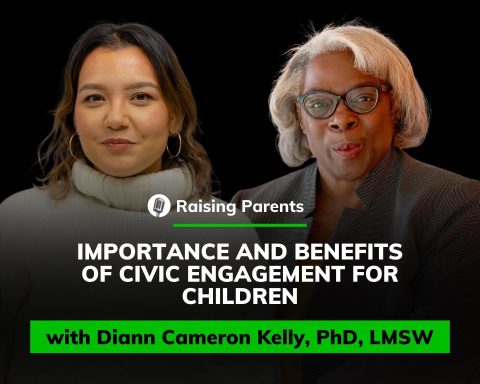In today’s digital age, media is essential for navigating life. Everyone, even children, is already exposed to it — the so-called “digital native generation.” However, their ability to comprehend all the information available still needs to be enhanced. That’s why media literacy is essential for them.
Media literacy prevents children from being exposed to fake news or misinformation and empowers them to use the media wisely. It develops the ability to analyze information, inform decisions, be responsible, and even actively participate in communities. However, parents tend to ignore the importance of media literacy.
This article explores how developing media literacy can enhance children’s community engagement, critical thinking, and civic awareness. It provides examples and tips for your parents to help them navigate media literacy for their children. Through this, your children can be more engaged and helpful to the community, more aware and critical of societal issues, and ready to be involved in society.
Parents, take a moment to explore this article. It offers valuable insights into media literacy and the community for children’s engagement!
Understanding media literacy and its importance
Before learning all the tips, you must understand the concept of media literacy.
Scientifically, media literacy or digital media literacy refers to the ability to understand and use information in multiple formats from various sources. It’s also defined as the ability to access, analyze, and evaluate media in multiple forms.
It’s related to technological literacy through the content formats and communication channels and to informational literacy through the ideas and concepts of the content.
In more general terms, media literacy is the ability to comprehend information from the media with critical thinking. It empowers individuals to choose good content to read, watch, and/or listen to. It also helps people become smarter and more aware of any information presented.
Media literacy aims to increase children’s awareness of any form of media. Children are already exposed to various media, and they must analyze and filter information before digesting it.
Media literacy also imparts new communication skills to children. Through media literacy, children can express themselves appropriately. They can ‘read the room’ of the media, assess whether it is safe for them, and communicate with awareness.
Read more: Digital Parenting: Navigating the Impact of Technology on Children’s Self-Esteem
Therefore, media literacy is more than just a skill for consumption. It’s about how to connect and engage with others through the media.
Why media literacy matters for community engagement
Media literacy is known to be associated with children’s community engagement. But what is community engagement? And how do they correlate with each other?
Community engagement (also known as civic engagement) is defined as the willingness of individuals to participate in addressing community issues and actions for the public good. It consists of several characteristics, including:
- Civic knowledge. The knowledge of public action processes and concepts.
- Civic skills. The ability to gain information, think critically, evaluate various perspectives, and discuss ideas.
- Civic attitudes. The emotional connection to society or community with a common good as the objective.
- Civic behaviors. The involvement of individuals in civic activities.
Media literacy plays a role in each characteristic. The cognitive dimension of media literacy is associated with civic skills, such as critical thinking in content searching, evaluation, and creation processes. This dimension requires children to be aware of community issues presented in the media.
Read more: Protect Your Digital Well-Being Through Digital Media Literacy
Media-literate children can use this skill to gain more understanding and participation in their community. Research found that children’s active participation in media makes them more likely to engage in their environment.
Therefore, the association between media literacy and active participation can enhance children’s community engagement.
Media literacy includes information usage and communication as components of civic knowledge and behaviors. Information usage is the most significant predictor of social issues and civic involvement. For children, it’s pretty clear that credible information equals more knowledge and likelier community participation.
Communication, on the other hand, is a part of civic behavior. As students gain communication skills, they can also communicate actively with their community and involve themselves in community activities.
These facts show the importance of media literacy in contributing to children’s community engagement.
Practices for parents to foster media literacy
So, what can you do to help children navigate media literacy and develop their community engagement? Here are some tips:
Teach critical evaluation of media
To enhance their critical thinking skills, children must know how to evaluate the media critically. Discuss these topics with your children:
- Information bias. Some information presented in the media is biased depending on factors like author, source, and purpose. Children must be able to detect any biases or intentions that might influence their perceptions.
- Misinformation or fake news. Information is also often presented to create sensations regardless of the truth. Therefore, children need the ability to analyze information, including fact-checking from reliable sources.
Encourage open conversations about current events
As a parent, you must also provide your children with an open space to discuss any events or information presented.
It is beneficial for teaching them how to use media and can also connect them to the real world. They need to know that the events or information they see in the media actually occur in real life. Here are some topics to discuss with your children:
- Local events. Start with what’s happening around your neighborhood.
- Community in action. Introduce activities related to the community, such as volunteering, and their importance.
- Nation and worldwide issues. For older children, learning more about significant issues on a national or international level is valuable.
Provide access to diverse media content
You don’t always have to focus on significant issues to enhance children’s media literacy.
Interesting topics that align with their interests also work. For example, you can teach them how to analyze pop culture properly. How they interpret news regarding their hobby and interact with others with similar interests can indicate their social engagement.
Later on, you can introduce social and civic issues to the table since they have already developed an engagement in social activity. It is also beneficial to broaden their understanding and awareness of any issues related to society and the community.
Encourage participation in community projects
As your children become more aware of the issues and actions around them, you can support them in participating actively in community activity. Here are some community engagement examples that children can do:
- Volunteering. They can begin by volunteering for projects such as local charities or environmental campaigns. The goal of these activities is to engage them in meaningful actions for the community.
- Community involvement in schools. Involvement in school groups or clubs can expose your children to more people, especially around their age, allowing them to connect and grow together.
- Creating their own media. If your children are already aware of and understand any issues around them, they can start their own media platforms to promote positive actions for the community.
Model media literacy and civic engagement
The most important factor in teaching children is being a good role model. Teaching them about media literacy and exposing them to the community is not enough to foster these abilities; you have to embody the same behaviors.
Children have higher levels of community engagement when they have civically engaged parents. It is important for you to do as you teach them. This helps them understand the importance of doing and engaging with things.
In conclusion
Developing media literacy in your children is essential in this era. Media literacy can equip them with important skills, such as being critical when evaluating information and understanding various perspectives on various issues. Moreover, media literacy can enhance children’s community engagement.
As a parent, your role is to foster these skills in your children. You have the power to cultivate these skills by teaching, encouraging, exposing, and even being their role model. By doing so, you can raise responsible and engaged members of society who are ready to positively impact their communities.
So parents, start developing media literacy in your children today, and raise your children’s community engagement.
If you would like to see more resources on civic engagement, check out the Parenting Science Labs. The lab uses the research of the Institute for Life Management Science to produce courses, certifications, podcasts, videos, and other tools. Visit the Parenting Science Labs today.
Photo by Freepik





